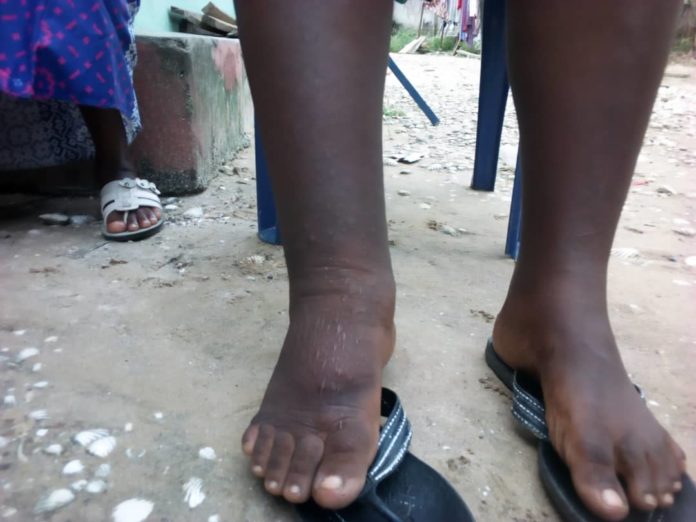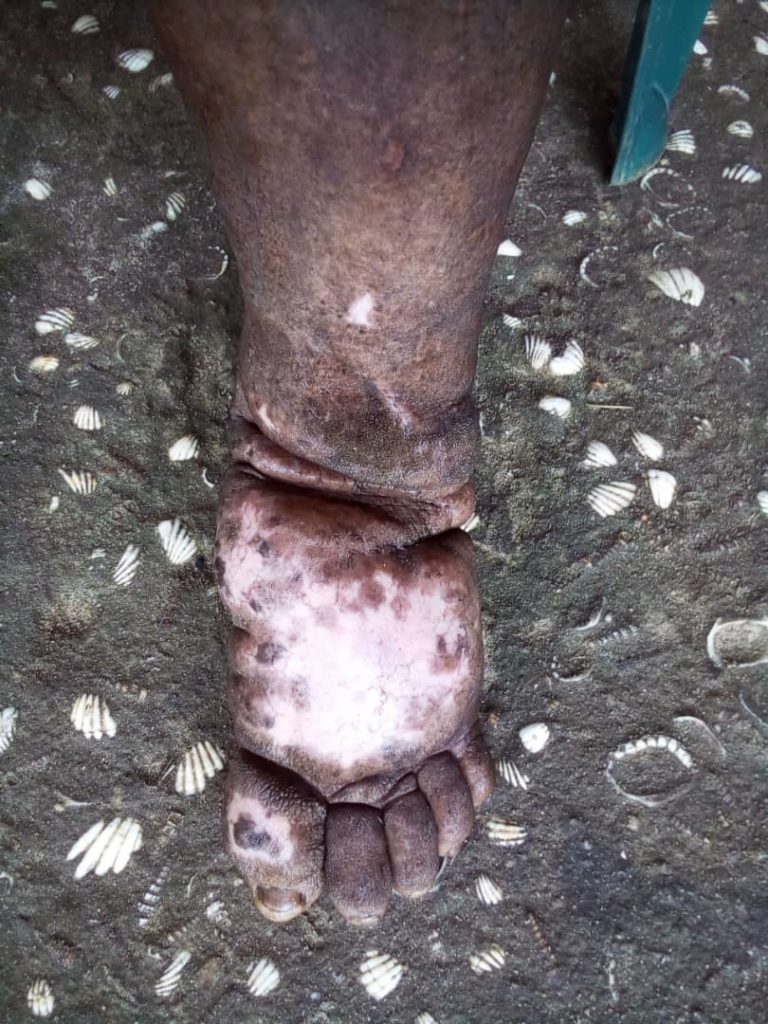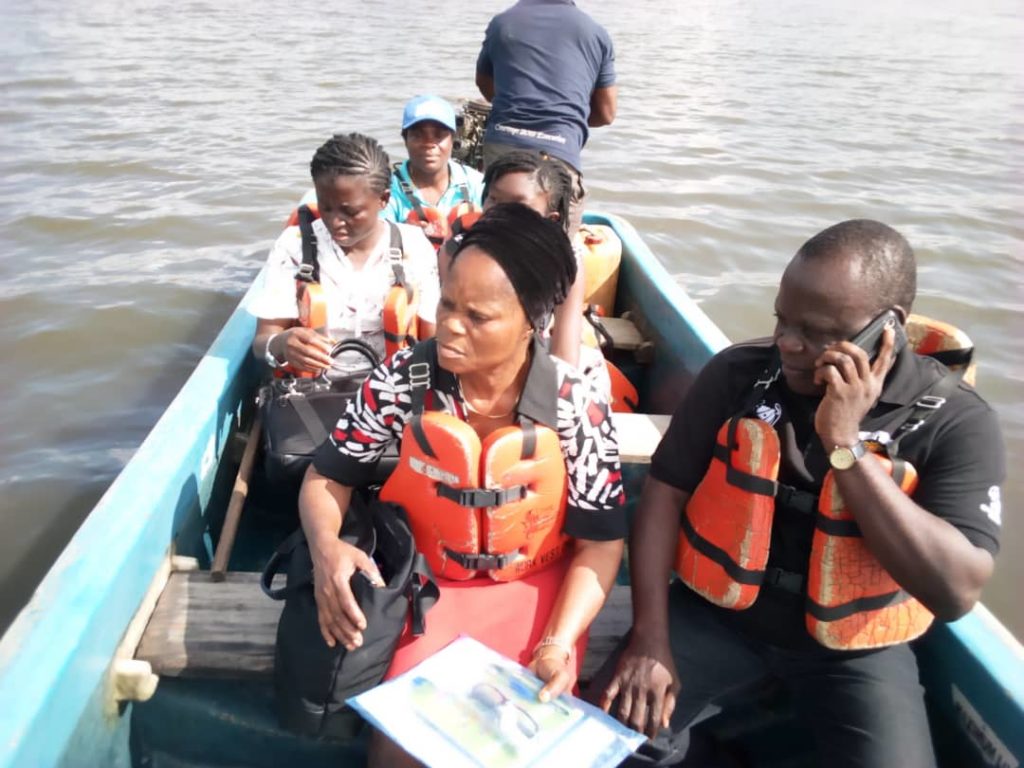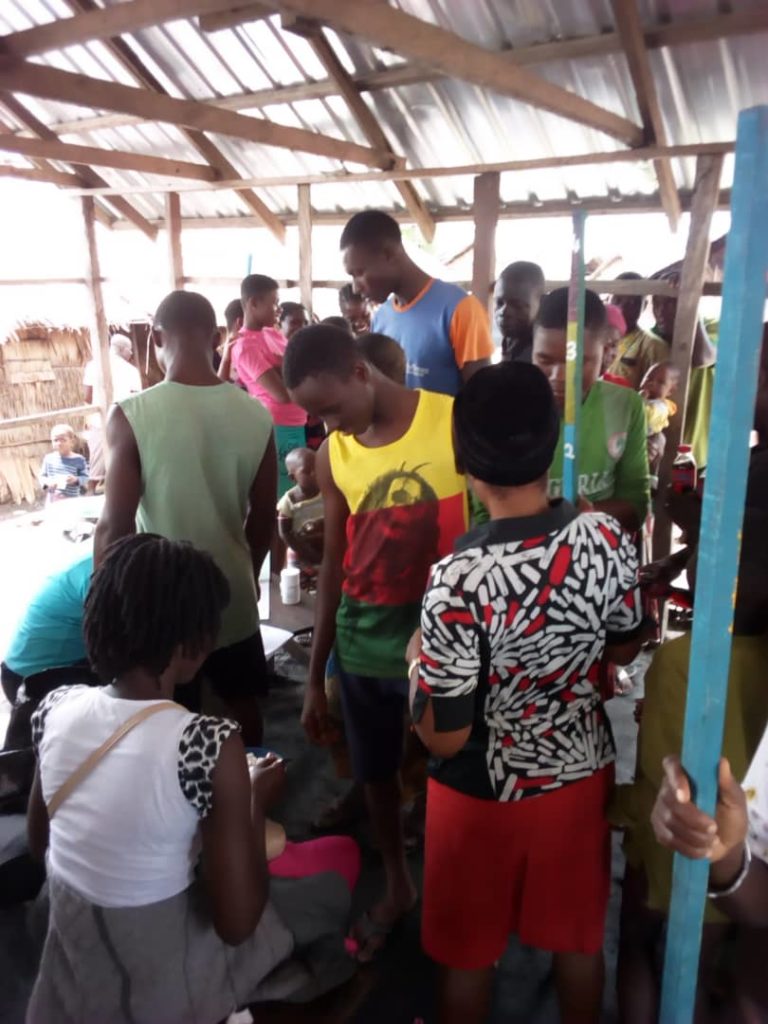
By Ndidichukwu Odoh
65 years old Diana Noah, woke up one morning to see that her left leg was swollen. She massaged the swollen part with water, and hoped it will go down after some hours.
Hours turned to days and days to weeks, the leg kept swelling. Her son, Adiais Noah took her to Egemema community health center in Andoni Local Government of Rivers State Nigeria, for treatment. Diana’s blood sample was taken for screening, few hours later, the result was out. She had “Okpo-Ukot”.
“Okpo-Ukot”- Lymphatic Filariasis (LF) popularly known as Elephantiasis is a Neglected Tropical Disease which affects mostly the deprived rural and sub-urban poor in low-income countries like Nigeria.

“It is a human disease caused by parasitic worms which leads to severe swelling in the arms, legs, breasts or genitals. In Nigeria, Rivers State is one of the endemic states” said Chioma Mong, UNICEF national monitor for Mass Administration of Medicine for Neglected Tropical Diseases in Rivers State.

Diana’s poor health has left a huge economic gap in her family, being infected means that she can no more move around. Diana and her four children, survive from the little gains Adiais makes from his daily menial jobs.
“I feel sad that this happened to my mother, I heard that it happens to people who commit evil” Adiais told Chioma Mong.
With support from UNICEF US in Nigeria and Chad for integration of Neglected Tropical Disease (NTDs) into Water, Sanitation and Hygiene (WASH), UNICEF Nigeria commenced Mass Administration of Medicines (MAM) in Rivers State of Nigeria in 2018 covering Ahoada East, Ikwere, Bonny, Andoni Local Governments.
Through Community Implementers (CIs), UNICEF administers Albendazole and Mectizan for prevention of Lymphatic Filariasis (Elephantiasis) and Onchocerciasis (River Blindness) respectively.

“there are some myths around elephantiasis in some of the communities in Rivers state, we have carried out sensitization and public mobilization to educate the people about the cause of these diseases and the reason why we are administering preventive medicines” said Lieze Gibson Assistant Disease Surveillance and Notification Officer at Andoni Local Government of Rivers State.
“It was a challenge for me as a Community Implementer when I met people who believed Elephantiasis was caused by evil, but I am happy we were able to sensitize the communities that LF is caused by parasitic worms from mosquitos, they now understand and are helping us spread the message that it is not a myth or evil” said Happiness Eke, a Community Implementer in Ikwere Local Government.
“After sensitization, some of the people who did not know the cause of some of the NTDs are now aware and are mobilizing other families to take the drugs” said Chineyere Orji another Community Implementer in Ikwere Local government of Rivers State.
The administration of preventive medicines like Albendazole and Mectizan by UNICEF is a safe and cost-effective intervention to prevent the infection, spread, suffering and life-long disabilities caused by River Blindness and Elephantiasis for the people in Rivers State.
In Rivers State, out of projected 863,323 people to be given Mectizan and Albendazole in the first phase of MAM, UNICEF has treated 706,507 people in 634 communities in the pilot LGAs reaching 356,507 females and 350,222 males. However the communities would need more sensitization to improve, WASH and prevent high open defecation practices as well as uptake of the medicines during the next rounds of MAM.






















